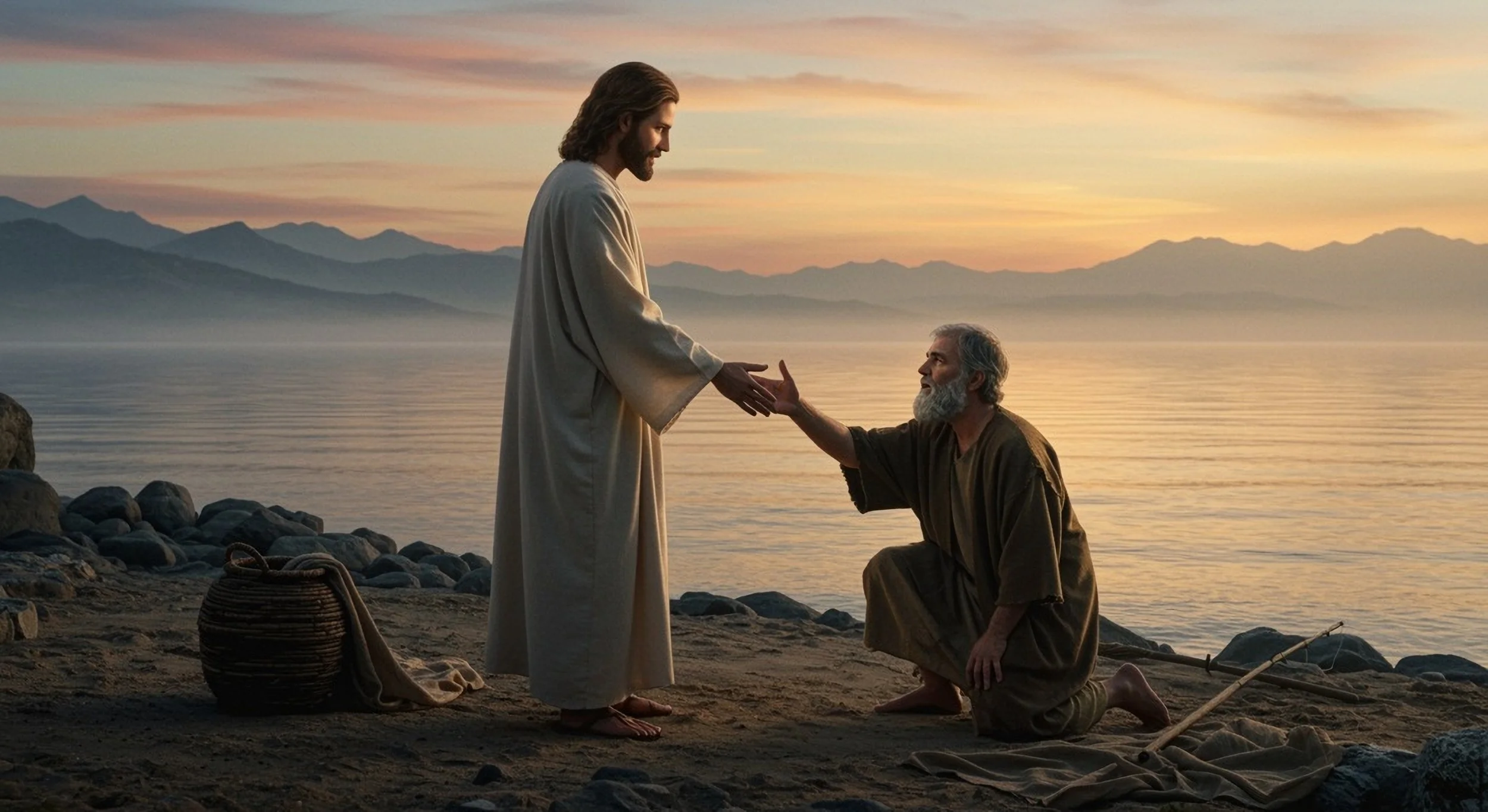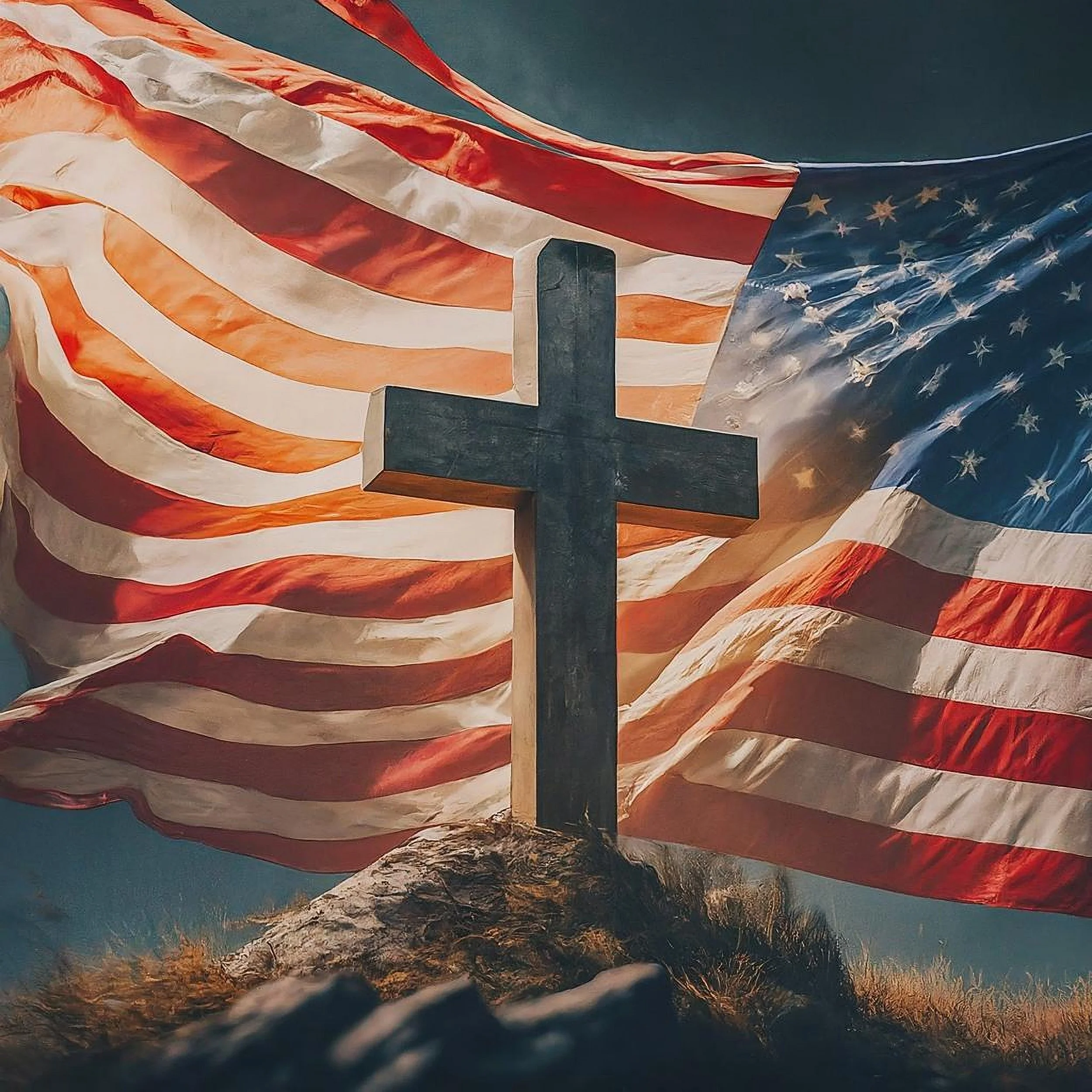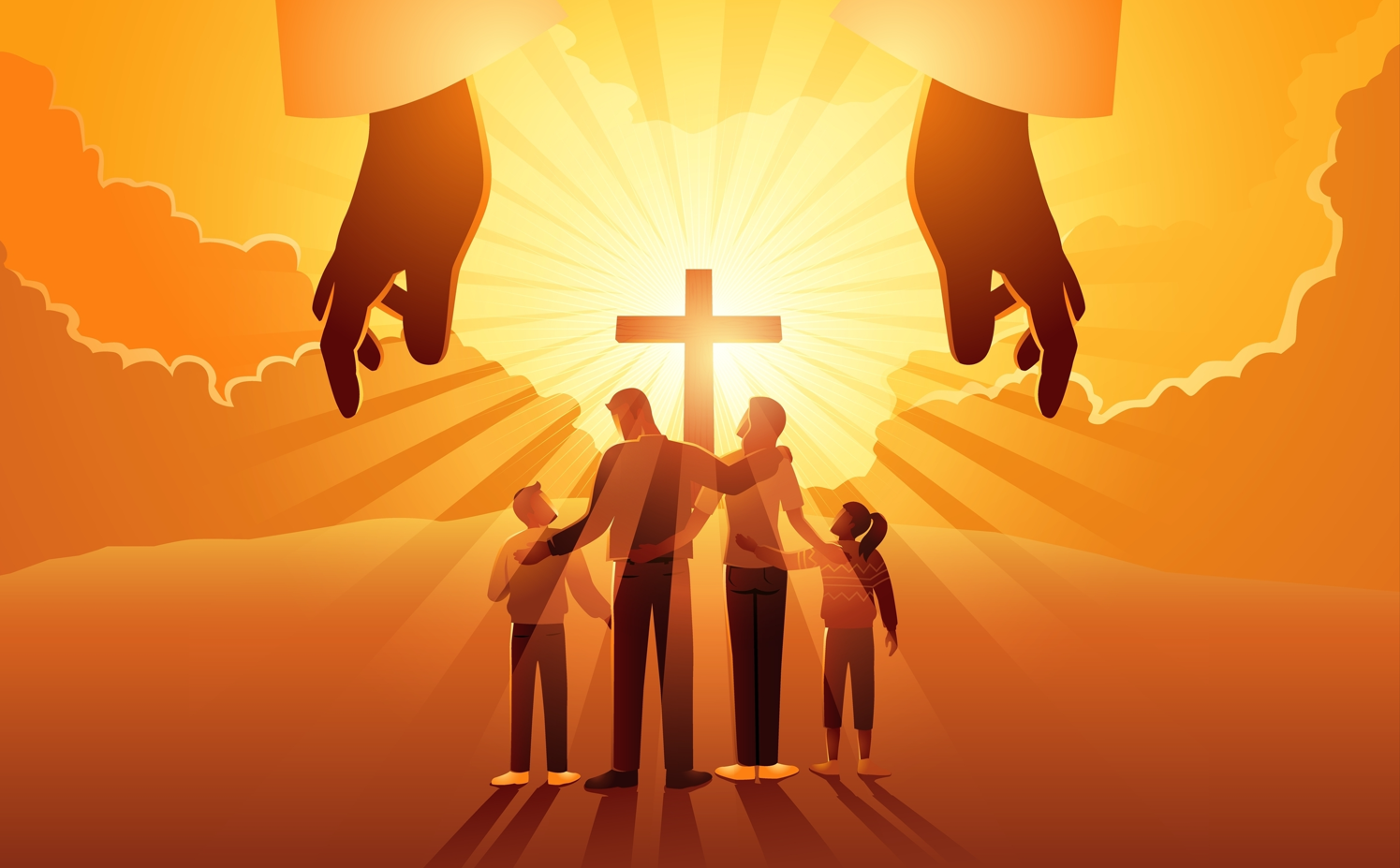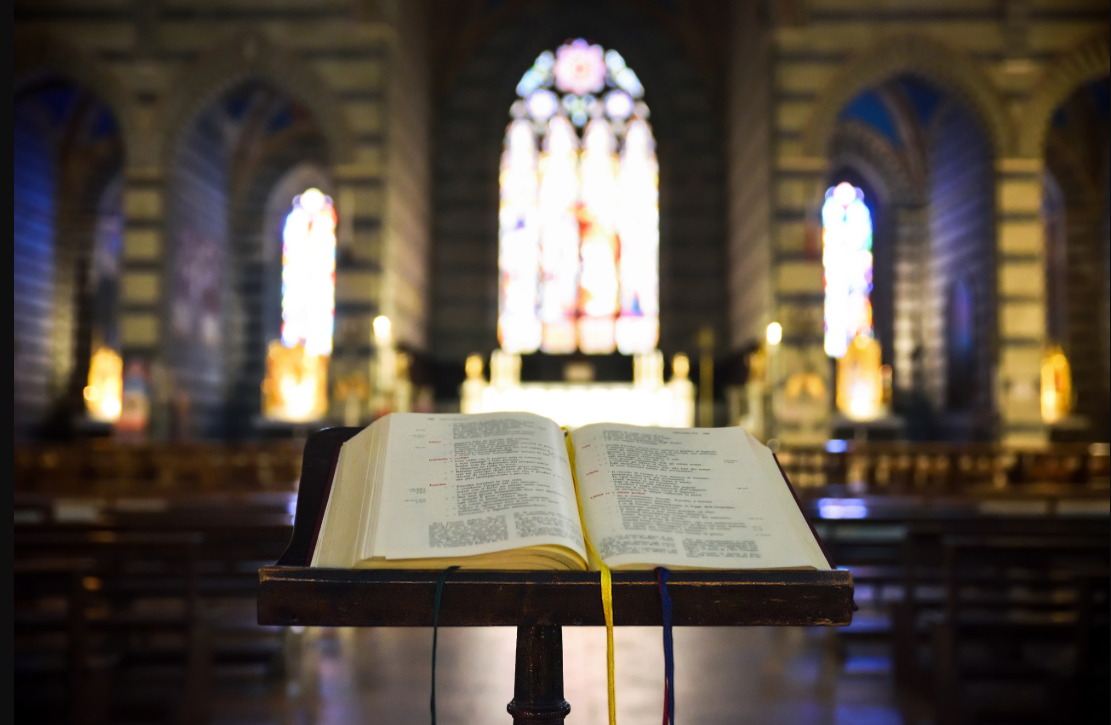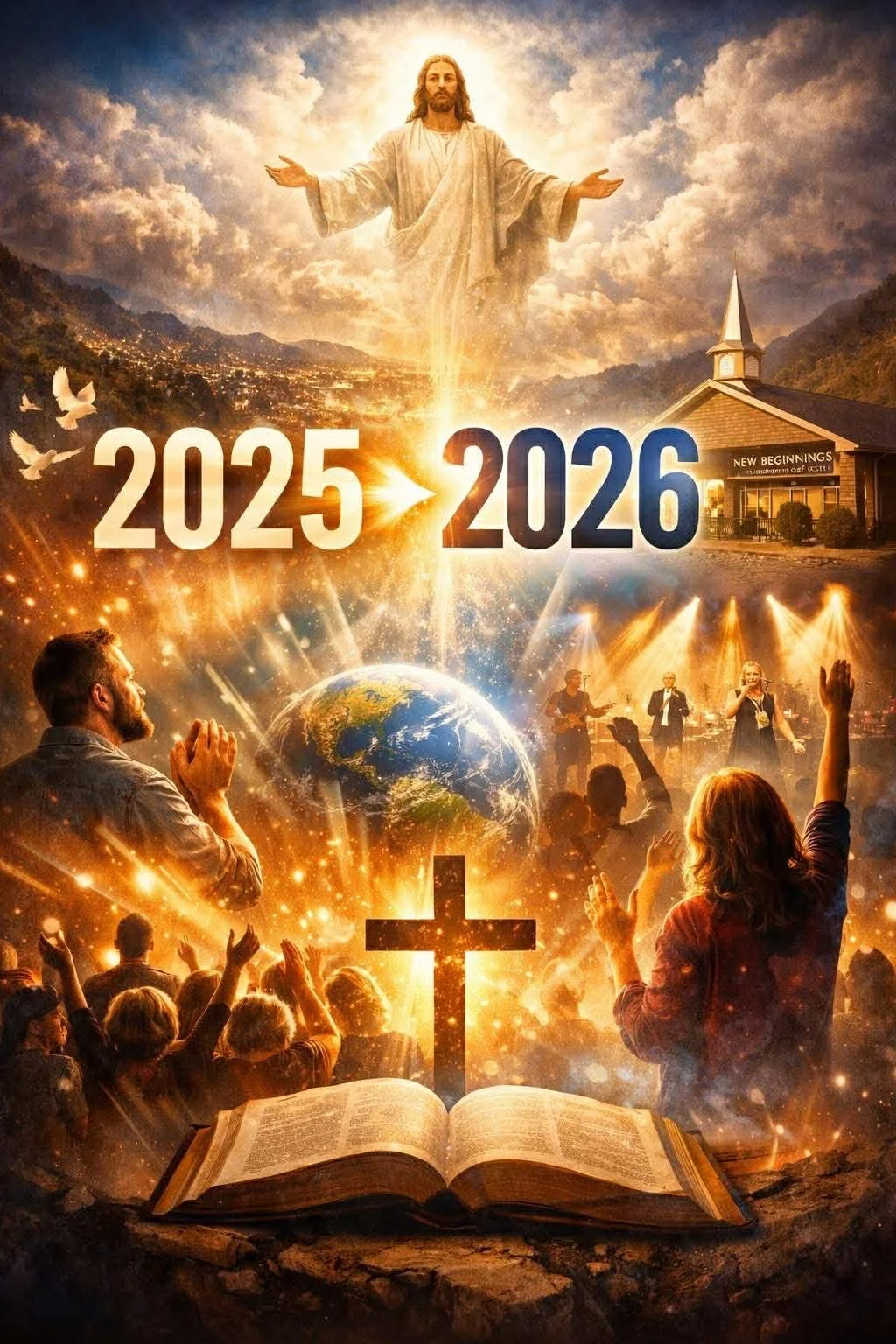Philadelphia, you're making foster care crisis worse

Toni Simms-Busch is a former social worker who fostered two young brothers through Catholic Social Services and has now adopted them. | Courtesy of Becket Fund
As a Lutheran pastor with urban roots, I am well acquainted with the numerous passages of scripture in which God calls Christians to care for the widows and orphans.
I have also seen how important it is for those in the Lutheran tradition to be able to serve their communities in a way that is in step with their religious beliefs. When the Supreme Court legalized same-sex marriage in 2015, we were reassured that religious individuals of good will would not be ostracized from public life and ministry for continuing to hold a traditional religious belief about marriage — as many within the Lutheran tradition do.
But now, the City of Philadelphia has asked the Supreme Court to sanction its religious discrimination against faith-affirming foster care agencies, and to exclude individuals and organizations with traditional religious beliefs from full participation in society by preventing them from serving those in need. If the Supreme Court were to grant Philly’s request, it would allow the government to force Lutherans to choose between what is scripturally central to our beliefs and full participation in public life — something that our ancestors came to America to escape.
If the Supreme Court does not act decisively in Fulton v. City of Philadelphia, the effect on religious ministries will be widespread. Every Lutheran ministry holding to a traditional belief about marriage will be at risk, with local governments able to force them to significantly scale back or even shutter their doors completely. Such collateral damage would be staggering and painful. And it would not square with the Court’s past promises that we can still live and act consistent with our beliefs.
This frightening prediction is not hyperbolic — it is borne out by the facts. Justice Kavanaugh at oral argument went last week so far as to call the City’s position “absolutist and extreme,” when noting that Philadelphia “created this clash,” even though “no same-sex couple has ever come to Catholic Social Services for participation in this program.” Several Justices also expressed concern about the implications of the City’s position for the continued existence of religious hospitals and homeless shelters.
Any experienced social worker will tell you that the investment in certifying foster families is significant and retaining families is a struggle. Up to fifty percent of foster families leave the system every year. Even without any previous exposure to the foster care system, I’m sure you can imagine what a difficult commitment it is to care for children as a foster parent. You need a community of support to sustain you.
So, what is the solution to the foster home shortage? Diversity. A diversity of families. A diversity of agencies. A diversity of expertise and experience.
Diversity allows foster parents to choose an agency that is the best fit to support their unique needs on their foster care journey. The ability to work with an agency that supports your values and your motivation (whether that motivation is James 1:27 or just a really big heart) is critical to helping families foster longer. For example, in one study, over eighty percent of families said that faith or church support was an important factor for them in successful fostering.
This need to work with an affirming agency is important to the LGBTQ community, too. That is why groups like the Human Rights Campaign help to certify and promote agencies that are uniquely experienced in supporting the needs of the LGBTQ community.
But instead of allowing diversity in foster care to flourish in serving kids and families, a handful of state and local governments have been targeting and shutting down faith-affirming foster care and adoption agencies. This religious targeting doesn’t help a single child find a loving home; it does the opposite by stopping religious foster families from serving kids in need. Justice Alito got it right when he said, “If we are honest about what’s really going on here, it’s not about ensuring that same-sex couples in Philadelphia have the opportunity to be foster parents. It’s the fact the City can’t stand the message that Catholic Social Services and the Archdiocese are sending by continuing to adhere to the old-fashioned view about marriage.”
Some claim that any negative impact of these shutdowns is hypothetical. But again, this is not borne out by the facts. In 2011, Illinois passed a law that shuttered faith-based agencies. In the eight years since Illinois lost over five thousand foster homes — the biggest decrease reported from any state. Other states, like Massachusetts, saw similar damaging impacts after forcing faith-based agencies to shut their doors. The federal government agreed, explaining that the City’s actions were “worse than cutting off its nose to spite its face. What it is doing is cutting off homes from the most vulnerable children in the city to spite the Catholic Church.”
Our culture has always been debating if, when, and how religious groups can participate in public life. The Constitution gives clear, high level mandates that the government must not interfere with the free exercise of religion. It is moments like now when Philadelphia has without cause singled out and discriminated against a religious ministry like Catholic Social Services, that the judicial branch has an obligation to step in and protect the humanitarian work being done.
The truth is that faith-affirming foster agencies are a critical part of the diverse community we need if we are going to beat our nation’s foster care crisis.
There is room for all people of goodwill to serve the poor, the orphaned, and the widowed. Let us be who we are.
Rev. Dr. Greg Seltz serves as the Executive Director of the Lutheran Center for Religious Liberty
Social media today functions much like the volatile crowds Gustave Le Bon described over a century ago when he observed, “Crowds are only capable of thinking in images, and are only to be impressed by images. It is by images alone that great leaders can be followed.” In the digital world, people aren’t working through truth with patience and reason; they’re reacting to symbols, slogans, memes, and bite-sized videos that bypass the mind and stir the gut and emotions.
Today’s verses are Deuteronomy 30:15-18a, where Moses says,
See, I have set before you today life and good, death and evil. If you obey the commandments of the Lord your God that I command you today, by loving the Lord your God, by walking in his ways, and by keeping his commandments and his statutes and his rules, then you shall live and multiply, and the Lord your God will bless you in the land that you are entering to take possession of it. But if your heart turns away, and you will not hear, but are drawn away to worship other gods and serve them, I declare to you today, that you shall surely perish.
"We will replace the frigidity of rugged individualism with the warmth of collectivism." Thus far Mamdani, whose words are chilling to the bone. Now we might counter that rugged individualism is a whole lot better than collectivism, and we'd be right. Collectivism means you lose your identity, you become a number, a statistic, a victim, and a ward of the state that cares not a whit about you.
Collectivism has the warmth of a Siberian gulag, a dark North Korean night. The fact that Mamdani can get away with such rhetoric, even after Communism has taken the lives of tens of millions of people, is frustrating.
Prayer Partner Thursday provides a month-long prayer emphasis in one of the four Lutheran Center for Religious Liberty areas of emphasis: Religious Liberty, Sanctity of Life, Educational Freedom, and Marriage as an Institution (family).
Today’s passage is from 1 Corinthians 1:26-31, where the Bible says….
But God chose the foolish things of the world to shame the wise; God chose the weak things of the world to shame the strong; God chose the lowly things of this world and the despised things of the world to nullify the things that are, so that no one can boast before him. It is because of him that you are in Jesus Christ, who has become for us wisdom from God that is our righteousness, holiness, and redemption, therefore as it is written; "let him who boasts, boast in the Lord!"
We live in an age obsessed with image management. Entire industries exist to shape perception—public relations firms, branding consultants, and social media strategists whose job is to make people appear impressive.
What's a blessing, and what's a curse? When it comes to earthly matters, it's often not clear. Success can be a killer, especially when it comes with fame. Michael Jackson and Whitney Houston, Elvis Presley, for sure, and a whole host of late 60s heroes who died at the age of 27. The Beatles benefited from being four, so were less susceptible to lackeys.
Today’s verse is Matthew 4:17, where the Bible says,
From that time on Jesus began to preach, “Repent, for the kingdom of heaven has come near.”
There is no trouble too large for the government to solve, no concern too small for it to care about. Such words might be spoken of God, for whom nothing is impossible. Have you trials and temptations? Is there trouble anywhere? We should never be discouraged. What a friend we have in Mamdani?
The Bulletin Insert is designed to be printed and cut in half to fit conveniently inside a Sunday worship bulletin. Each month an insert will offer insight, encouragement, and information from the LCRL on the topics of Religious Liberty, Life, Marriage, or Education.
The dates identifying the LCRL bulletin blurbs are only suggestions. Please feel free to use any and all of the bulletin blurbs as your ministry needs allow.
Today’s verse is John 1:29 which tells us of this encounter between John the Baptist and Jesus:
“The next day John saw Jesus coming toward him and said, ‘Look, the Lamb of God, who takes away the sin of the world!’”
We are hearing more and more that famous quotation from Martin Luther: “I’d rather be ruled by a wise Turk than by a foolish Christian.” The problem is, no one has been able to find that famous quotation in any of the voluminous works of Luther. It appears that the quotation is apocryphal. I suspect it may have originated as an attempt to explain the implications of Luther’s doctrine of the Two Kingdoms, as in, “Luther would have rather been ruled by a wise Turk. . .” which then was recalled as “Luther said he would rather have been. . . .” Read more from Dr. Gene Edward Veith here.
Today’s passage is Matthew 3:13-17, where the Bible says,
Then Jesus came from Galilee to the Jordan to be baptized by John. 14 But John tried to deter him, saying, “I need to be baptized by you, and do you come to me?” 15 Jesus replied, “Let it be so now; it is proper for us to do this to fulfill all righteousness.” Then John consented. 16 As soon as Jesus was baptized, he went up out of the water. At that moment heaven was opened, and he saw the Spirit of God descending like a dove and alighting on him. 17 And a voice from heaven said, “This is my Son, whom I love; with him I am well pleased.”
As 2025 ends, as faithful Lutherans, there is much to be thankful for as we have seen many positive developments for faith and freedom.
Pregnancy resource centers are booming while Planned Parenthood clinics are closing their doors. It looks like we are beginning to see a spiritual revival among young adults as they reject the emptiness of the culture they see around them. And several states have passed common-sense age verification laws, upheld by the U.S. Supreme Court, to protect innocent children from accessing graphic pornography online.
So, what is ahead for 2026? What policy advancements can we make to continue this positive momentum back towards faith and freedom?
Today’s passage is Luke 2:41-50, where the Bible says,
Every year Jesus’ parents went to Jerusalem for the Festival of the Passover. 42 When he was twelve years old, they went up to the festival, according to the custom. 43 After the festival was over, while his parents were returning home, the boy Jesus stayed behind in Jerusalem, but they were unaware of it. 44 Thinking he was in their company, they traveled on for a day. Then they began looking for him among their relatives and friends. 45 When they did not find him, they went back to Jerusalem to look for him. 46 After three days they found him in the temple courts, sitting among the teachers, listening to them and asking them questions…. 47 Everyone who heard him was amazed at his understanding and his answers. 48 When his parents saw him, they were astonished. His mother said to him, “Son, why have you treated us like this? Your father and I have been anxiously searching for you.” 49 “Why were you searching for me?” he asked. “Didn’t you know I had to be in my Father’s house?” 50 But they did not understand what he was saying to them.
Today is a dark day in the history of Illinois. Governor Pritzker—of whom every LCMS pastor in Illinois prays for each week and will continue to do so—signed into law . . . the “End-of-Life Options for Terminally Ill Patients Act,” granting terminally ill patients who have received a prognosis of six-months to live or less the ability to receive a pill in order to end their own lives.
Prayer Partner Thursday provides a month-long prayer emphasis in one of the four Lutheran Center for Religious Liberty areas of emphasis: Religious Liberty, Sanctity of Life, Educational Freedom, and Marriage as an Institution (family).
Today’s verses are Galatians 4:4-7, where the Bible says,
4 But when the fullness of the time came, God sent His Son, born of a woman, born under the Law, 5 so that He might redeem those who were under the Law, that we might receive the adoption as sons and daughters. 6 Because you are sons, God has sent the Spirit of His Son into our hearts, crying out, “Abba! Father!” 7 Therefore you are no longer a slave, but a son; and if a son, then an heir through God.
A blessed Christmas to all of you “for today (many years ago) in the town of David a Savior has been born to you; he is Christ, the Lord. This will be a sign to you: You will find a baby wrapped in cloths and lying in a manger” (Luke 2:11-12). The life, death and resurrection of Jesus came as a blessing to the world even though the world didn’t deserve it and, even worse, was unreceptive to receiving Him as the gift that He was for them (see John 1:10-13).
Today’s verses are Isaiah 35:3-4, where the Bible declares:
Strengthen the weak hands, and make firm the feeble knees. 4 Say to those who have an anxious heart, “Be strong; fear not! Behold, your God will come with vengeance, with the recompense of God. He will come and save you.”
We are slaves of Christ, but earthly slavery is not a good thing. Slavery is an institution of the fallen world. I am led to understand that even today there are fifty million people living as the property of others. I'm not sure what would happen if we added to that number those enslaved in various systems like North Korea. But bonds and fetters are not to be celebrated or commended, and if someone might say that it is a good thing, I have never seen anyone volunteer to be on slavery's receiving end. This is not to be a Pollyanna or to hide our heads in the sand. Throughout history, when one nation has conquered another, slavery has resulted. There will always be wars and rumors of wars, and life is messy. And yet slavery is not a good thing. And we can say so without losing sight of the fact that we as Christians are slaves of God, even as we are His children.
The dates identifying the LCRL bulletin blurbs are only suggestions. Please feel free to use any and all of the bulletin blurbs as your ministry needs allow.
The Bulletin Insert is designed to be printed and cut in half to fit conveniently inside a Sunday worship bulletin. Each month an insert will offer insight, encouragement, and information from the LCRL on the topics of Religious Liberty, Life, Marriage, or Education.
Today’s verses are Isaiah 35:3-4, where the Bible declares:
Strengthen the weak hands, and make firm the feeble knees. 4 Say to those who have an anxious heart, “Be strong; fear not! Behold, your God will come with vengeance, with the recompense of God. He will come and save you.”
[Weeks ago], a group from Concordia Theological Seminary, Fort Wayne, gathered on the sidewalk that runs by the local Planned Parenthood. There were perhaps 15 of us in all, but what a mighty and faith-filled people. A young couple, a father with three or four little ones in tow, a student from Germany, another from Australia.
What of it? Things change, and prayers are answered. Just as few predicted the fall of the Soviet Union and the crumbling of the Berlin Wall, we were supposed to think that Roe v. Wade was set in stone, a law surer than the Ten Commandments. Stare decisis, we heard ad nauseam. But in step six wise and courageous judges, and we got the Dobbs decision. Now, that didn't happen by accident. It was a matter of persistent. Persistent prayer, persistent marching, persistent lobbying and electioneering. Why bother? 60 million little ones who have lost their lives. And still counting.
Today’s passage is Matthew 3:1-2, where the Bible says,
In those days John the Baptist came, preaching in the wilderness of Judea 2 and saying, “Repent, for the kingdom of heaven has come near.”
America has changed dramatically since the 1950s and 1960s. Back then, in the years after World War II, it was a halcyon time for religion in this country. Christianity was assumed in society; it was the default setting. Christians were denominationally focused; fights largely occurred within the faith. Now, the threat comes not only from within but also from without, from secularists and zealots determined to belittle Christianity and, if it were possible, bring about its downfall.
The times we live in call for a different mentality and a different strategy. They call for Christians of all stripes to band together to fight an enemy that seeks to curtail our influence in society and even — it’s hard to avoid this conclusion — completely silence our voice in the civic sphere.
Prayer Partner Thursday provides a month-long prayer emphasis in one of the four Lutheran Center for Religious Liberty areas of emphasis: Religious Liberty, Sanctity of Life, Educational Freedom, and Marriage as an Institution (family).
Today’s Bible reading is Philippians 4:4-6 where the Apostle Paul says,
4 Rejoice in the Lord always. I will say it again: Rejoice! 5 Let your gentleness be evident to all. The Lord is near. 6 Do not be anxious about anything, but in every situation, by prayer and petition, with thanksgiving, present your requests to God.
Thanksgiving takes a lot of flak these days. Christmas haters are called “Scrooges” or “Grinches,” but haters of Thanksgiving are considered socially conscious and realistic. For many Americans, the fourth Thursday in November is an annoying holiday with racist origins — an excuse to force innocent citizens to gorge on poorly prepared, outdated foods while fraternizing with uncongenial relatives. It is, moreover, a day of hypocritical tension between trite demands to “be grateful” versus a Black Friday rush through the mall. Dismissively labeled “T-day” on social media, Thanksgiving is becoming mere no-man’s-land stuck between the two towers of Halloween and Christmas.
~subheadIndex-h2







